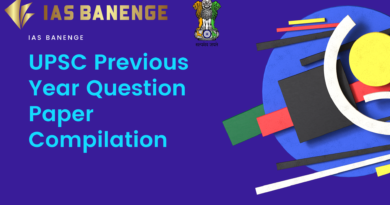Time management for UPSC for students.
Time management is a crucial aspect of preparing for the UPSC CSE exam. The UPSC Civil Services Examination is one of the most competitive exams in India, and the preparation for it can take a significant amount of time and effort. In this article, I will discuss some effective time management strategies that students can use to prepare for the UPSC CSE exam.
Understand the exam pattern and syllabus
Before starting your preparation for the UPSC CSE exam, it is essential to understand the exam pattern and syllabus thoroughly. The exam has three stages: Preliminary, Mains, and Interview. Each stage requires a different level of preparation, and you need to allocate your time accordingly. Similarly, the syllabus of the exam is vast, and you need to have a clear understanding of the topics and subtopics that you need to cover.
Make a study plan
Once you understand the exam pattern and syllabus, the next step is to make a study plan. A study plan will help you allocate your time effectively and ensure that you cover all the topics within the given timeframe. When making a study plan, consider the following points:
- Divide your preparation into small and achievable targets.
- Set deadlines for each target and try to meet them.
- Make a realistic study plan that considers your daily routine, strengths, and weaknesses.
- Prioritize the topics that you find difficult and allocate more time to them.
- Focus on time-bound preparation
- The UPSC CSE exam has a fixed date, and you need to complete your preparation before that. Therefore, it is crucial to have a time-bound preparation plan. While making your study plan, make sure that you have sufficient time to revise, practice mock tests, and solve previous year question papers.
Learn to prioritize
When it comes to the UPSC CSE exam, all topics are equally important, but some topics require more time and attention. Therefore, it is essential to learn to prioritize. Prioritize the topics that have more weightage in the exam or that you find difficult. Allocate more time to these topics and try to master them.
Keep a balance between static and current affairs
The UPSC CSE exam has both static and current affairs topics. Static topics include history, geography, polity, and economy, while current affairs cover current events and issues. It is essential to maintain a balance between static and current affairs. While static topics require a thorough understanding, current affairs need to be updated regularly.
Use technology to your advantage
Technology can be a useful tool for time management. There are many apps and websites that can help you manage your time and stay organized. For instance, you can use a study planner app to plan your study schedule, a time tracker app to track the time you spend on each task, and a note-taking app to jot down important points.
Take regular breaks
Taking regular breaks is essential for effective time management. It helps to refresh your mind and reduce stress. While making your study plan, allocate some time for breaks. Take short breaks after every hour or two of study and take longer breaks after completing a target or a topic.
Practice time-bound tests
The UPSC CSE exam is a time-bound exam, and you need to complete the paper within the given time. Therefore, it is crucial to practice time-bound tests. Solve previous year question papers and take mock tests to improve your speed and accuracy.
Focus on quality over quantity
It is not the number of hours you spend studying that matters; it is the quality of your study that counts. Focus on quality over quantity. Try to understand the concepts thoroughly and revise them regularly. Make sure that you are not just reading but also retaining the information.
.




